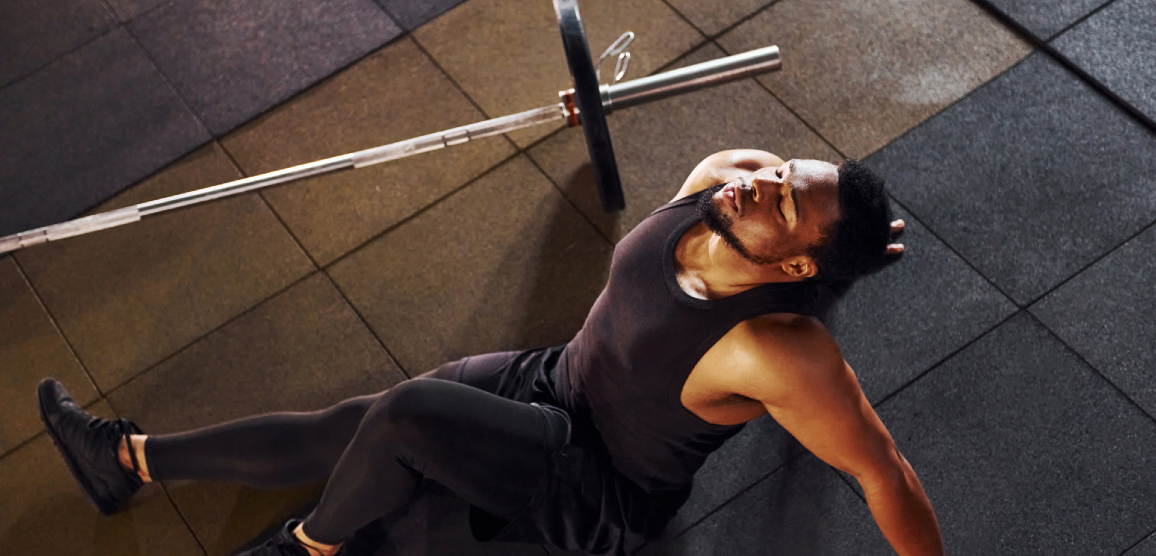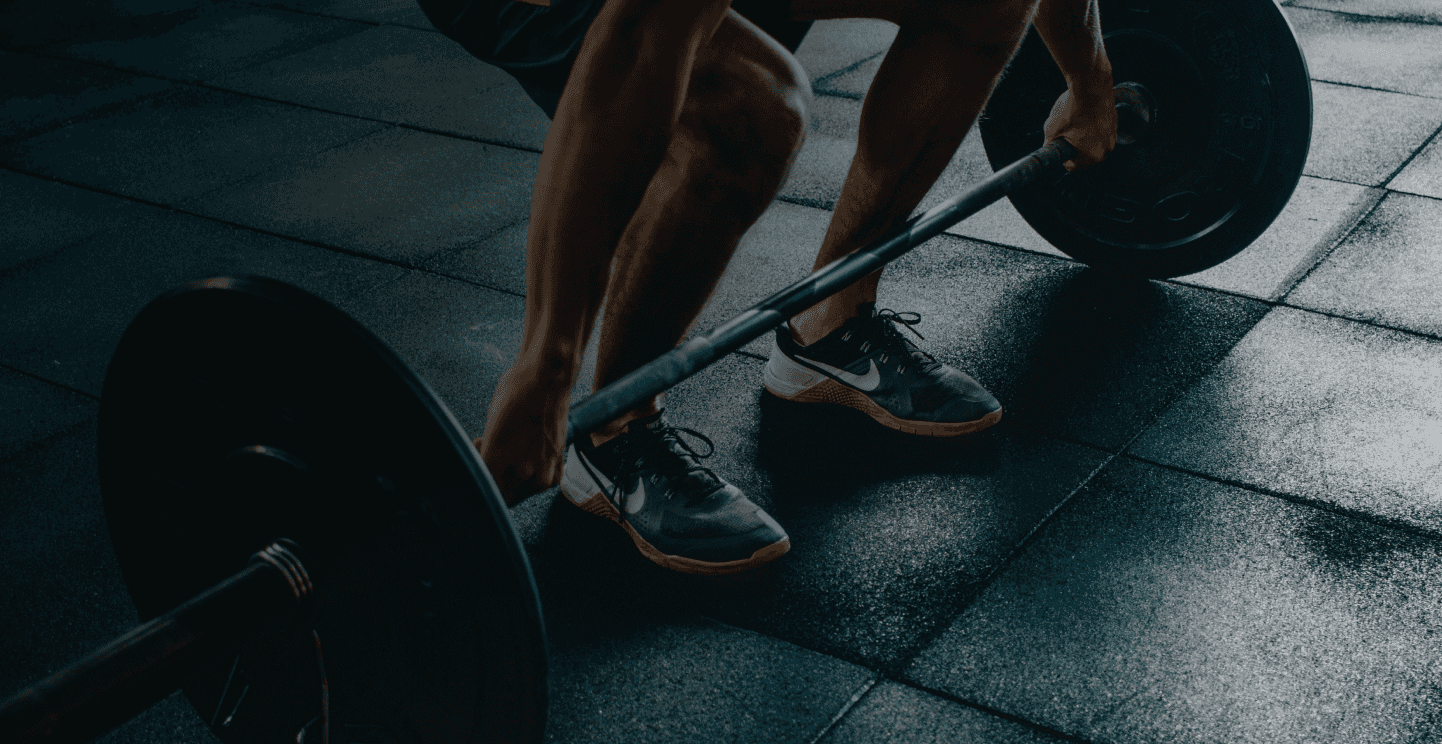Weightlifting Floor Mats: Choosing Correct Support & Material

Weightlifting Floor Mats: Choosing Correct Support & Material
Creating a conducive workout space at home involves more than just setting up equipment; it's about crafting an environment that fosters both safety and performance. Among the essential elements of any home gym setup are weightlifting floor mats. These mats not only protect your flooring from damage but also provide the necessary support and stability for effective weightlifting sessions.
In this guide, we'll explore the world of weightlifting floor mats, focusing on how to choose a mat with the correct support and material to enhance your home gym experience.
Types of Weightlifting Floor Mats
When it comes to selecting weightlifting floor mats for your home gym, you'll find a variety of options available, each designed to meet specific needs and preferences. Understanding the different types of gym floor mats can help you choose the best option for your workout space. Here are some common types of floor mats:
Solid Rubber Mats
Solid rubber mats are thick, heavy-duty mats typically made from recycled rubber materials. These mats offer excellent durability and shock absorption, making them ideal for heavy lifting exercises. Solid rubber gym mats come in various thicknesses to provide different levels of cushioning and support.
Interlocking Mats
Interlocking mats feature puzzle-like edges that allow you to connect multiple mats together to create a seamless workout surface. These weightlifting mats are versatile and easy to install, making them a popular choice for home gym owners. Interlocking mats come in various thicknesses and can be customized to fit any space.
Roll-Out Mats
Roll-out mats are large, continuous rolls of rubber flooring that can be easily rolled out and installed over any surface. These mats are ideal for covering larger gym areas quickly and efficiently. Roll-out mats come in various thicknesses and can be cut to size to fit your specific needs.
Stall Mats
Stall mats, also known as horse stall mats, are heavy-duty rubber mats originally designed for use in horse stalls. However, they are also popular among weightlifters due to their durability and thickness. Stall mats come in standard sizes and thicknesses and are suitable for use in home gyms and commercial fitness facilities.
Rubber Tiles
Rubber tiles are individual tiles made from rubber materials that can be laid out to cover the entire workout area. This rubber gym flooring option comes in various sizes and thicknesses and can be easily replaced if a tile is damaged. Rubber tiles offer the flexibility to create custom designs and patterns on the gym floor.
Portable Mats
Portable mats are lightweight and easy to transport, making them ideal for those who want to set up a temporary workout space or take their mats with them when traveling. These mats are usually thinner than other types of weightlifting floor mats but still provide adequate support and cushioning for most exercises.
Choosing the right type of weightlifting floor mat depends on factors such as your budget, space availability, and workout preferences. Whether you opt for:
- solid rubber mats
- interlocking mats
- roll-out mats
- stall mats
- rubber floor tiles
- or portable mats
Investing in high-quality flooring is essential for creating a safe and comfortable workout environment in your home gym. Consider your specific needs and requirements carefully to select the best weightlifting floor mats for your fitness goals.
Picking the Ideal Gym Mats
Picking the proper gym equipment, from exercise equipment to free weights to weight mats, requires a comprehensive understanding of the options and factors involved. Here are all the aspects of picking the ideal lifting home gym flooring:
Support Matters
When it comes to weightlifting, proper support is paramount. The right floor mats can significantly reduce the impact on your joints, allowing you to focus on your lifts without worrying about potential injuries. Look for mats that offer adequate cushioning to absorb shock and reduce strain on your body during heavy lifts.
Thickness is a key factor to consider when selecting weightlifting floor mats. Thicker mats generally provide better support and shock absorption, making them ideal for heavy lifting exercises like deadlifts and squats. Aim for mats with a thickness of at least 0.5 inches to ensure sufficient cushioning.
Material Selection
Rubber flooring stands out as the material of choice for weightlifting floor mats, and for good reason. Rubber offers a perfect blend of durability, traction, and shock absorption, making it ideal for high-impact workouts.
One of the primary benefits of rubber mats is their ability to withstand heavy use and abuse. Whether you're dropping weights or performing intense cardio workouts, rubber flooring can endure the rigors of daily exercise without wearing down or losing its structural integrity.
Additionally, rubber mats provide excellent traction, reducing the risk of slips and falls during your workouts. This is particularly important when lifting heavy weights, as a secure footing is essential for proper form and safety. Interlocking rubber tiles are specially designed as a non-skid surface.
Another advantage of rubber flooring is its ease of maintenance. Unlike carpet or hardwood floors, rubber mats are easy to clean and sanitize, making them hygienic for use in home gyms. Simply wipe down the mats with a mild detergent and water solution, and they'll be ready for your next workout.
Choosing the Right Design
Weightlifting floor mats come in various designs and configurations to suit different preferences and needs. Interlocking mats are popular for their versatility and ease of installation. These mats feature interlocking edges that allow you to create a customized workout area while ensuring stability and seamless transitions between exercises.
Alternatively, roll-out mats offer a convenient solution for covering larger gym spaces. These mats come in rolls of varying lengths and widths, allowing you to cover the entire workout area with minimal seams. Roll-out mats are ideal for those seeking a sleek and professional-looking gym floor.
Can Rubber Mats Handle Dropped Weight?
One of the primary concerns for weightlifters is whether their flooring can withstand the impact of dropped weights. Fortunately, rubber mats are exceptionally well-suited to handle the demands of heavy lifting.
Rubber flooring is renowned for its durability and resilience, making it an ideal choice for weightlifting environments. When weights are dropped onto rubber mats, the material absorbs much of the impact, reducing noise and minimizing the risk of damage to both the equipment and the floor beneath.
The thickness of rubber mats plays a crucial role in their ability to handle dropped weights effectively. Thicker mats provide greater cushioning and shock absorption, dispersing the force of the impact across a wider surface area. As a result, even heavy weights dropped from a significant height are less likely to cause damage to the flooring below.
In addition to protecting the underlying floor, rubber mats also help to extend the lifespan of your weightlifting equipment. By cushioning the impact of dropped weights, rubber flooring reduces the risk of damage to barbells, dumbbells, and weight plates, ensuring they remain in optimal condition for longer.
Rubber mats offer excellent traction, providing a stable footing for weightlifters during their workouts. This is particularly important when performing exercises such as deadlifts and cleans, where maintaining balance and control is essential for proper form and safety.
Overall, rubber mats are more than capable of handling dropped weights in a weightlifting environment. With rubber flooring, you can lift with confidence, knowing that your equipment and flooring are protected from the rigors of heavy lifting.
Ideal Rubber Gym Mats With RubberFlooring4U
When it comes to building a home gym, investing in quality weightlifting floor mats is a must. These mats not only protect your flooring but also provide the support and stability needed for effective weightlifting workouts. By choosing mats made from durable rubber material and ensuring sufficient thickness for cushioning, you can create a safe and comfortable workout environment in your own home.
At RubberFlooring4U, we offer a wide selection of premium rubber weightlifting floor mats to suit your needs. Whether you're setting up a small home gym or a commercial fitness facility, we have the perfect flooring solution for you.
Browse our collection today and take the first step towards creating your dream workout space!
